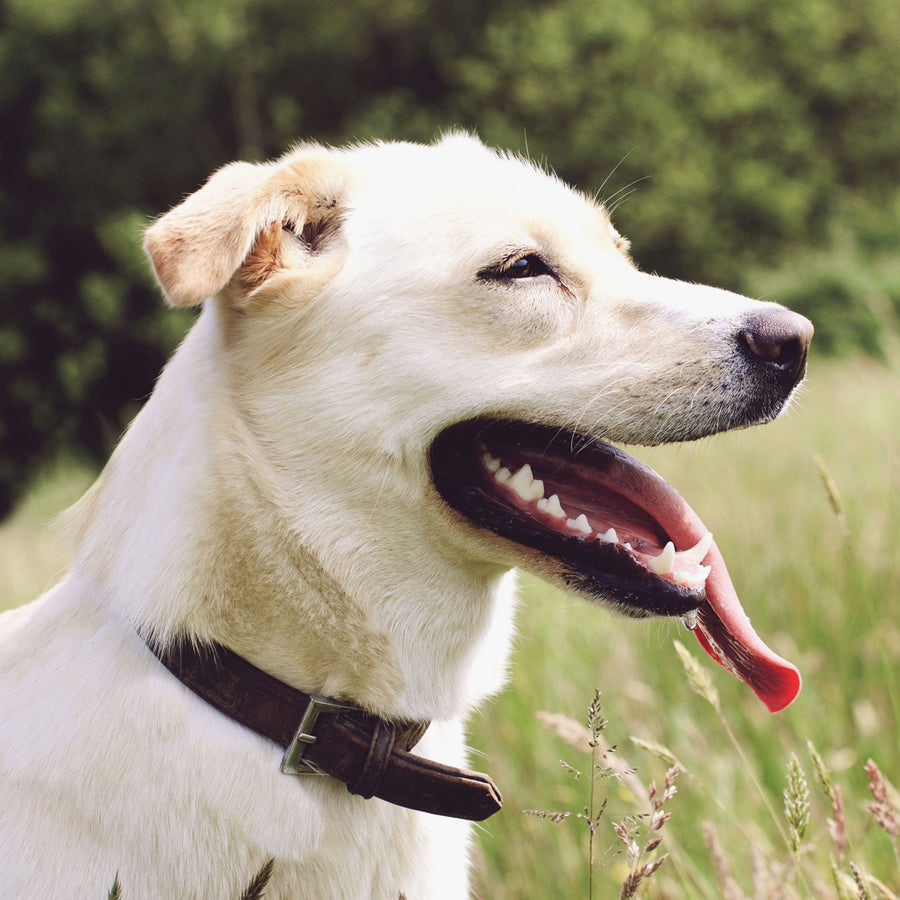Ep. 12: Now's the Time for Positive Reinforcement
In these trying times of dealing with COVID-19, stress levels are incredibly high. Now more than ever, we need to apply the concepts of positive reinforcement, not to our dogs, but to ourselves as well. Granting ourselves the permission to try and then noticing and rewarding those attempts, not matter how small and incremental they may be.
This includes not only how we get through our daily life but also how and when we are interacting with, or training, our dogs. Simply because there may be a stay-at-home order doesn't therefore guarantee you will master all of your dog training goals during this time. Just the opposite. It is extremely likely you will be LESS inclined to work with and train your dog - and that is okay. Please be kind and forgiving to both yourself and your pups.
We hope this episode can cause people to reevaluate how they may be approaching this difficult time and in doing so, help lessen their load even just a little bit.
Speaker: Dianna L. Santos
TRANSCRIPT
Speaker 1 (00:00):
Welcome to the It's Time to Train Your Dog Podcast. In this podcast, we talk about all things dog training that conclude training tips, a behind the scenes look at what your instructor may be going through and much more. In this episode, we want to talk about the importance of using positive reinforcement with ourselves. Before we start diving into the podcast episode itself, we may just do a very quick introduction of myself. My name is Dianna Santos. I'm the Owner and Lead instructor for Family Dog University, Dog Sport University, Scent Work University, and Canine Fitness University. These are online dog training platforms that are designed to provide high quality dog training instruction to as many people as possible. We're very fortunate to have a client basis worldwide. For Family Dog University in particular, we cover all of the skills that you would need to have a good family pet. So our family dog program will walk you through how to help your dog to be more successful in living in your home. We also have a real life skills program, so you're able to take all those skills out into the world. In addition to that, we have a CGC prepping program, a shaping behavior program, and much more. So we do this by providing online courses, webinars, seminars, a regularly updated blog and podcasts of what you're listening to today. So I should know a little bit more about me. Let's dive into the podcast episode itself.
(01:12):
So I wanted to do this pocket episode because it is still currently the COVID-19 era and people are under a lot of stress when it comes to just living day-to-day life. Not to mention working with their dogs, training their dogs, trying to live with their dogs, and I think that it's really important for all of us to remember that positive reinforcement is something that doesn't just have to happen in relation to our dogs or how we're training our dogs. It's also important to use that same exact approach for ourselves and how we may be approaching things with our dogs or just generally speaking. So one of the things that we're doing through our various online dog training platforms, particularly on social media, is we are providing daily training challenges, and these are supposed to be something that is absolutely optional. They're free, but it's to give people something to do with their dogs, something to strive for.
(02:11):
They may not be able to do every single challenge in that very moment. They may need to do a fair amount of training to be able to do the end behavior, but just to give people something to do, something to distract themselves from the ugliness of what's going on right now. But at the same point, something I noticed fairly early on is that there were some people who were posting that they weren't going to be able to participate or that they felt bad, that they weren't going to be able to post right away, and that there was somehow this undue pressure that the training challenges was putting upon them, that they were almost feeling as though they were not meeting the expectation of being able to do all this stuff in the midst of this extraordinarily stressful trying and strange time. That's unsettling for everyone no matter how you may be affected by it personally, at the very least, it's odd and humans don't do odd very well.
(03:20):
Just like everything else, we're kind of creatures of habit and we definitely fall into our routines and when all of that kind of gets upended, it can be very unsettling. So I wanted to do this podcast episode because I've seen how something that I had created was being perceived in a way that I did not anticipate, did not want, and I needed to figure out a way of how I could try to help people better digest what it really was meant to be. So I think a lot of this goes back to the need of highlighting the importance of positive reinforcement in the way of how it is that you're supposed to be approaching things and how you think about them. So lemme break that down a little bit.
(04:09):
When you are doing positive reinforcement for training for dogs, one of the big things that you're trying to do is you're trying to keep your eyes open for any approximations of behavior that are close to what it is that you're looking for. You're trying to look for opportunities to reward the dog for doing what you want them to do. Basically. One of the things that I really personally like about this approach is it inadvertently changes the approach that the person has towards their dog in that they're no longer looking for ways their dog is screwing up. They're looking for ways that their dog is trying. It's that observation and noticing of attempts that your dog may not be getting to the final behavior quite yet, but that they're trying, and that shift I've noticed over the years is a very important one. It takes the relationship of dog owner and dog from an adversarial, really nasty, negative one to one where there's a lot more understanding and compassion where if you're noticing that your dog is really trying but still struggling, that you can then say, okay, maybe I need to break this down a little bit more.
(05:27):
Maybe this is too big of a leap. Maybe it's too big of a jump.
(05:32):
What I'm proposing is that very same thing that we are always harping on that people do with their dogs, that they do it with themselves as well, particularly during this very challenging time, no one even in the same household, even if you're all stuck together, no two individual people are going to be taking in the situation the same way. Even if your life circumstances are the same, you're two individuals. Your brain chemistry is different, your brain physiology is different. You are different. You are an individual. So one of you may dealing with this by being super active as far as trying a bunch of different hobbies and doing a lot of reading and research and what have you, maybe even dog training. Whereas maybe for yourself, just taking a shower is like a big ordeal. Maybe just getting out of bed is just really difficult. Eating right is like this huge hassle. There is an overwhelming worry, or you're constantly concerned when the next shoe is going to drop.
(06:51):
Neither of those approaches are wrong. Neither of those approaches are bad. It's how it is that you are internalizing this whole situation, how you're dealing with it. What I'm suggesting is that for either of those people, they would benefit by applying some positive reinforcement to how it is they're going through the day. Even for the go-getter, even the person who is doing a million things in one, it could simply be that they're doing that to try to distract from the fact that they're actually feeling pretty stressed. They can even say, you know what? I didn't overdo it today. I didn't work out for three hours to the point where I couldn't walk down the hallway without limping. I only worked out for an hour. You know what? That's good. That's a good change for me. I was really overdoing it before. So that's good. That's an example of applying positive reinforcement to how it is that you're dealing with your life for the person on the other extreme, I took a shower today. Pat yourself on the back for that. Yes. Notice these things. Grant yourself the opportunity to notice attempts to notice steps in the right direction to breaking things down into smaller steps and pieces. Now, how does all this apply to dogs? Well, it also applies to how it is that you're interacting with your dog.
(08:27):
There has been some muttering out in the social media vacuum that if during this time you did not magically create the perfect dog, then clearly you are not up to par as a dog owner. Nothing could be further from the truth, simply because the situation may be requiring you to be home more. That doesn't necessarily mean that you now have 24 hours a day available to you. Also, you don't have 24 hours of mental ability available to you. Even if you had all the resources at your disposal, money wasn't a concern. You didn't have to worry about kids being out of school. Even if your overall stress level in some imaginary setup wasn't all that high, your dog didn't suddenly become a computer that you can now upload a program to and they can spit out an output. Both of you are going through a very strange time together.
(09:34):
Their routine has been upended. Your routine has been upended, and there is stress, and stress is going to be affecting both of you. So applying the whole concept of positive reinforcement to how it is you may or may not be training your dog is important because if you are instead approaching this as a, I didn't train my dog for four hours today, I am a complete and total lack of a human being, I can pretty much guarantee you you're not going to want to do anything with your dog tomorrow. Instead, if you said, you know what? In between all this insanity, I played games with my dog. Some of them were training, some were just playing. Some of it was just snuggling three times today for a total of 15 minutes across the day. You know what? That's pretty darn good. That's great. That's absolutely fantastic. I tip my hat to you. That's what I'm really trying to stress with this is, please don't place unnecessary burdens on yourself during this already horrific time. It's not fair to you, it's not fair to your dog, it's not fair to your family that you may be stuck at home with. It adds another level of stress that quite frankly doesn't need to be there. There's no requirement in this. You don't have to do any of this, so don't worry about it too much.
(11:07):
Alright, so I hope you guys found this podcast episode helpful. Happy training. We look forward to seeing you soon.

